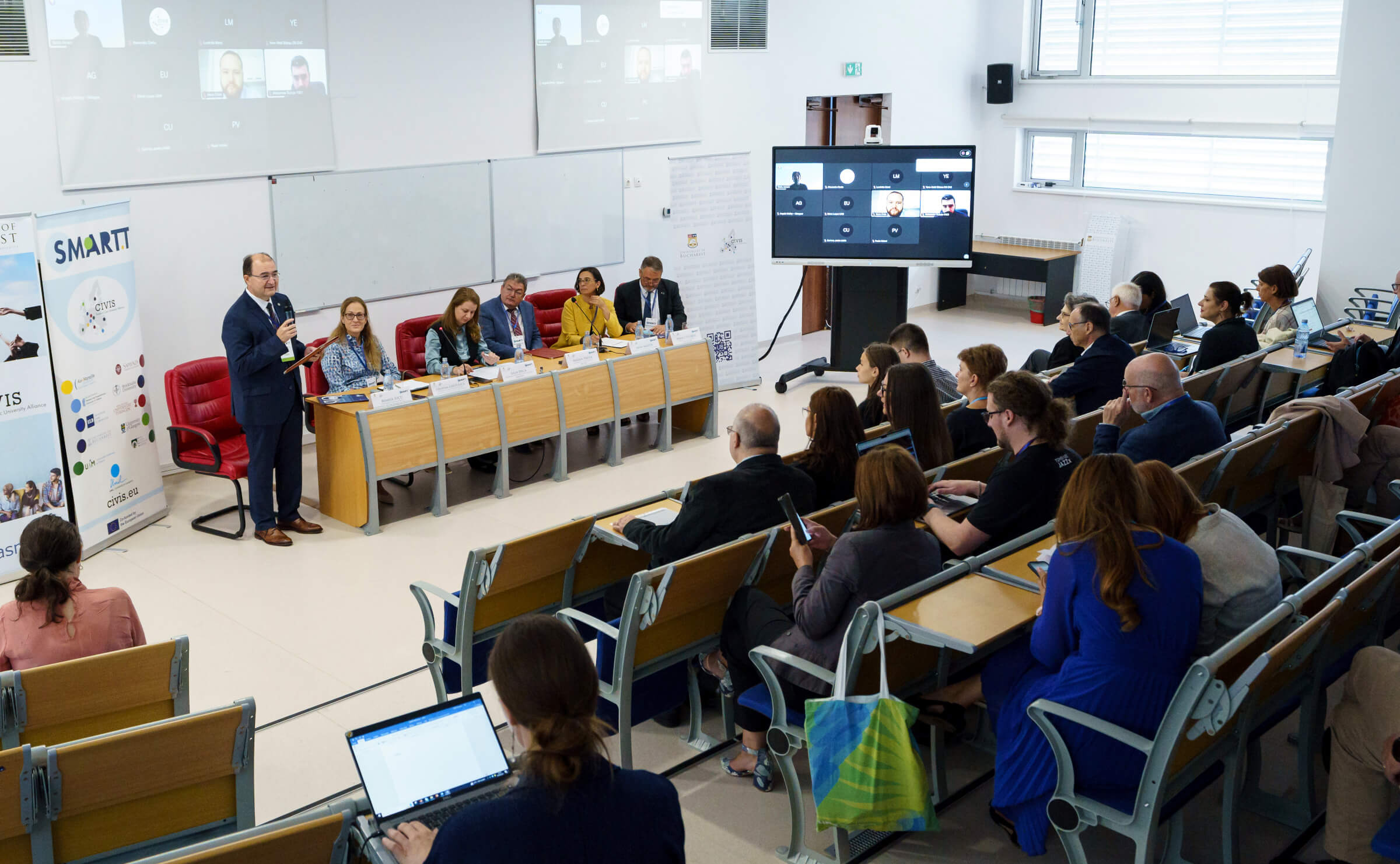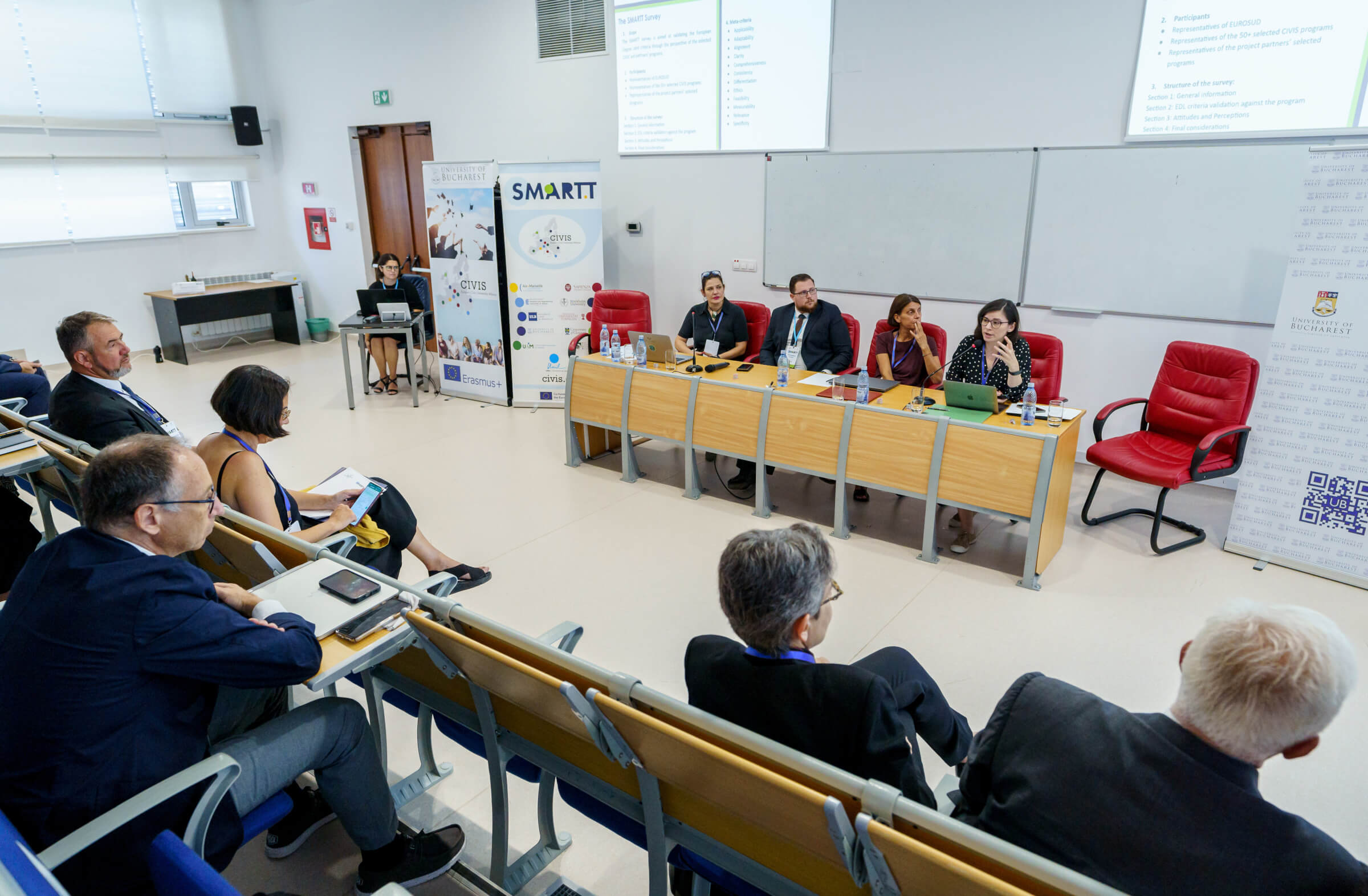SMARTT presented the initial results of testing the European degree label criteria
Great success and strong participation marked the public dissemination event of the presentation of the results from the first phase of the SMARTT project. The conference took place on Tuesday, September 5, 2023, at the University of Bucharest and brought together academics, high officials from EU member states and the European Commission.
Project SMARTT (acronym for Screening, Mapping, Analysing, Recommending, Transferring, and Transforming higher education international programmes) has been developed by the CIVIS - Europe’s Civic University Alliance in cooperation with the European Universities Alliances, EUTOPIA, NEUROTECHEU, and UNITA, and with support of higher education institutions and European and national stakeholders. The project was selected by the European Commission as a pilot project for future European Degrees. The European label degree represents a certificate of excellence that is attached to the qualifications of students graduating from joint study programs. These programs are carried out through the cooperation of multiple higher education institutions based on a set of co-created European criteria. The event was held with the distinguished participation of Mrs. Ligia Deca, the Romanian Minister of Education, Mr. Odysseas-Ioannis Zoras, Secretary General for Higher Education on behalf of the Greek Minister of Education, Mrs Daniela Cristina Ghițulică, Vice-President of the European Association for Quality Assurance in Higher Education (ENQA), Mrs. Vanessa Debiais-Sainton, Director of Higher Education Unit at the Directorate-General for Education, Youth, Sport and Culture (DG EAC), European Commission, as well as Mr. Yann-Maël Bideau,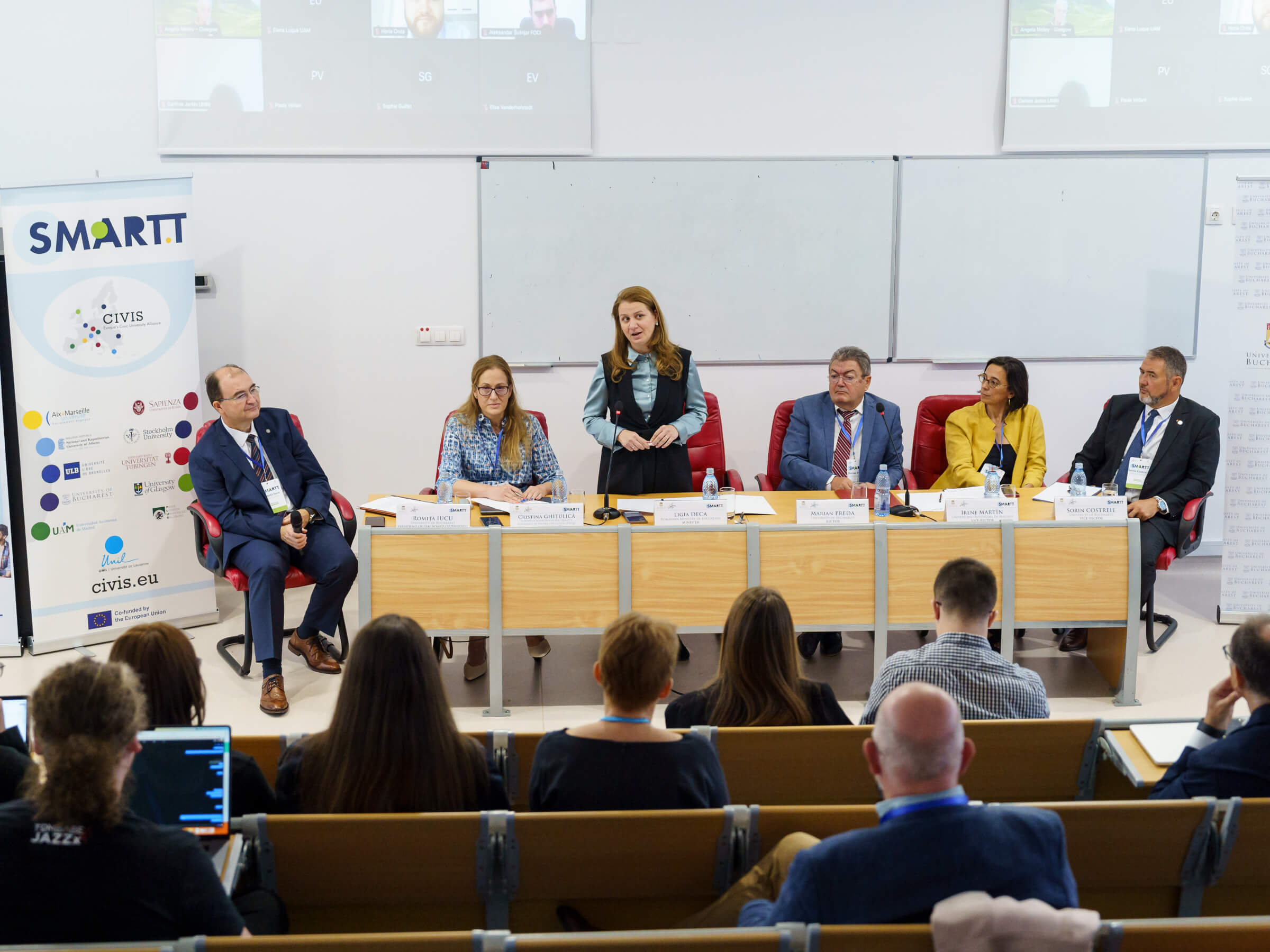 Policy Officer at the European Commission.
Policy Officer at the European Commission.
At the opening of the event, Prof. Dr. Romiță Iucu, the President of the Orientation and Strategic Analysis Council of the University of Bucharest (UB), Co-chair of the European Degree Subgroup at FOR-EU and SMARTT Leading Expert, who moderated the meeting, emphasized that the event marks "a step forward" in the pilot project for European Degrees at UB, where the Autonomous University of Madrid (UAM) and the European Civic University Alliance CIVIS are coordinators as well. Furthermore, Prof. Dr. Marian Preda, the Rector of the University of Bucharest, highlighted that UB has always made concerted efforts to build, assert, and consolidate a strong research community: "The University of Bucharest has always sought to focus its attention on both progress in research and opinions on what can be improved. Therefore, we aim to have a university that asserts itself globally, to have a research community aligned with European standards," emphasized Professor Preda.
Ligia Deca, the Romanian Minister of Education, stressed to the attendees the importance and the need for innovation in the educational system: "Introducing innovations in the educational system is probably the most important project we are working on together. To achieve this, we need to return to basic concepts, to European values, with the aim of creating a European identity. Among all partner universities, it is necessary to create a common legislative framework, based primarily on trust," said Mrs Ligia Deca.
Odysseas-Ioannis Zoras, the Secretary-General for Higher Education on behalf of the Greek Minister of Education underlined, that “the Greek leadership of the Ministry of Education, Research, and Religious Affairs places special emphasis on the internationalization of Greek higher education institutions, the expansion of international and European collaborations, the promotion of innovative initiatives, and the implementation of law n. 4957 regarding Higher Education”. The goal is to contribute to the development of the European higher education space and to open up new horizons for the academic community, supporting both social and economic development at both national and international levels, said Mr Zoras .
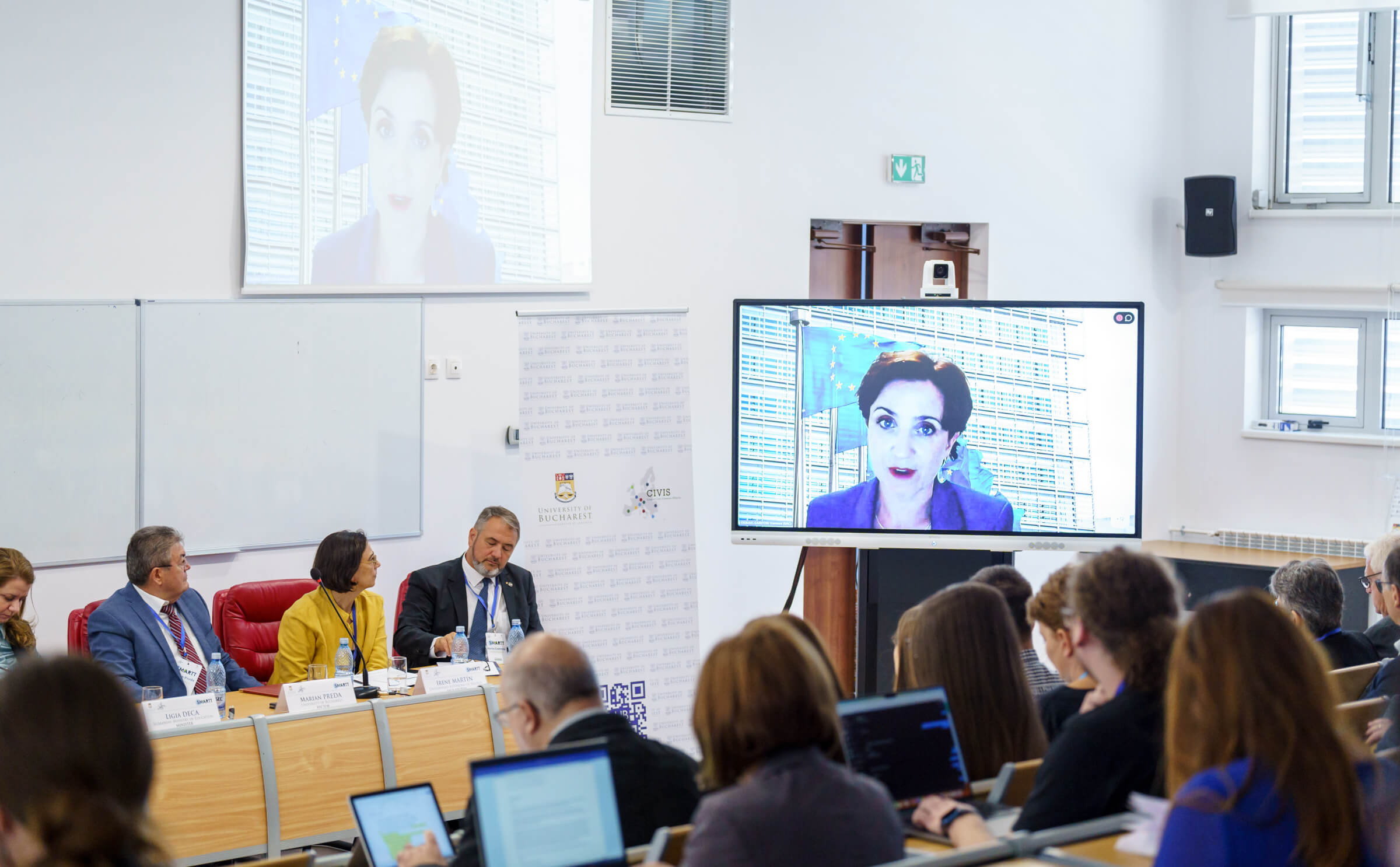 Recommendations were made also by the European Commission's representatives. Vanessa Debiais-Sainton, the Director of the Higher Education Unit within the Directorate-General for Education, Youth, Sport, and Culture of the European Commission, highlighted the importance of providing new opportunities to the new generation through the European Higher Education Area. She noticed that "the SMARTT project, which is being implemented in cooperation with 4 European Universities, 29 higher education institutions, 18 countries, and 15 national organizations, represents a significant step in this direction”. Yann-Maël Bideau, the Policy Officer at the European Commission responsible for the European Degrees project, said that “transnational cooperation is the strength of the European Higher Education Area, offering a multitude of benefits for students, university institutions, and national legislative frameworks”.
Recommendations were made also by the European Commission's representatives. Vanessa Debiais-Sainton, the Director of the Higher Education Unit within the Directorate-General for Education, Youth, Sport, and Culture of the European Commission, highlighted the importance of providing new opportunities to the new generation through the European Higher Education Area. She noticed that "the SMARTT project, which is being implemented in cooperation with 4 European Universities, 29 higher education institutions, 18 countries, and 15 national organizations, represents a significant step in this direction”. Yann-Maël Bideau, the Policy Officer at the European Commission responsible for the European Degrees project, said that “transnational cooperation is the strength of the European Higher Education Area, offering a multitude of benefits for students, university institutions, and national legislative frameworks”.
Cristina Ghițulică, Vice-President of the European Association for Quality Assurance in Higher Education (ENQA), in turn discussed the perspective of ensuring the quality of higher education and the role of her institution, emphasizing its openness to "support this project in terms of innovation in the educational system."
Prof. Dr Irene Martín, the Vice Rector at the Autonomous University of Madrid, discussed the challenges that the implementation of the SMARTT project presents to partner universities, including UB and UAM, as well as the necessity of its existence, given the socio-economic context we are going through.
In turn, the SMARTT project team presented the results and outcomes of the first phase of the SMARTT project. Angela Melley (University of Glasgow) presented the EUROOSUD Preliminary Recommendations through various aspects of the European Degree Label. Mattea Capelli (Sapienza Università di Roma) shared her view on the selection of Smartt International Programs, highlighted that the aim of this pilot is to identify obstacles to the implementation and development of joint degrees, while promoting the exchange of good practices and sharing transnational strategies to overcome such obstacles. Alexandru Cartis (University of Bucharest) was extensively referred to the various label ideas and three possible scenarios. Simona Iftimescu (University of Bucharest) provided a lucid explanation of the methodology and work pace established during the initial stage of the pilot. This phase involved breaking down the 20 criteria into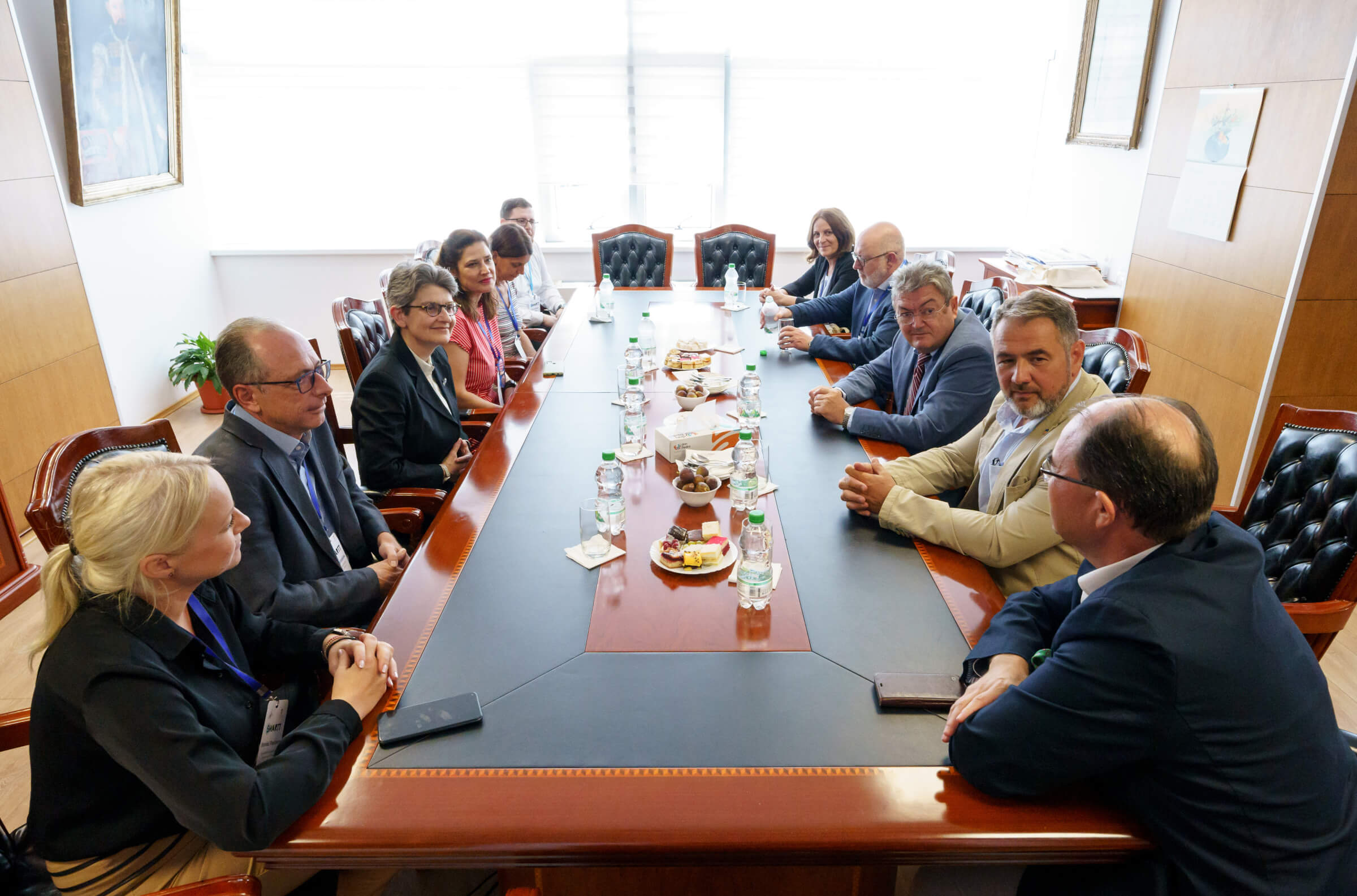 four distinct clusters. Simona, in collaboration with the expert groups, diligently selected the most fitting indicators for each criterion, emphasizing the importance of maintaining rigor throughout the evaluation process.
four distinct clusters. Simona, in collaboration with the expert groups, diligently selected the most fitting indicators for each criterion, emphasizing the importance of maintaining rigor throughout the evaluation process.
Nadia Fernández de Pinedo, Prof. Dr at the Autonomous University of Madrid and the Coordinator of the SMARTT project offered a comprehensive overview of the project shedding light on its various phases and primary outcomes. She placed strong emphasis on the paramount importance of collaboration among all stakeholders. Notably, the pilot phase of the project has given rise to diverse levels of engagement for all partnering institutions collaborating with SMARTT. These engagement levels encompass active participation as expert groups, taking part in focused discussions and interviews, contributing to the identification of barriers, sharing best practices, offering valuable insights for recommendations, and dedicating significant efforts to disseminate project outcomes. All of these efforts are aligned with the shared goal of advancing the project's overarching objectives.
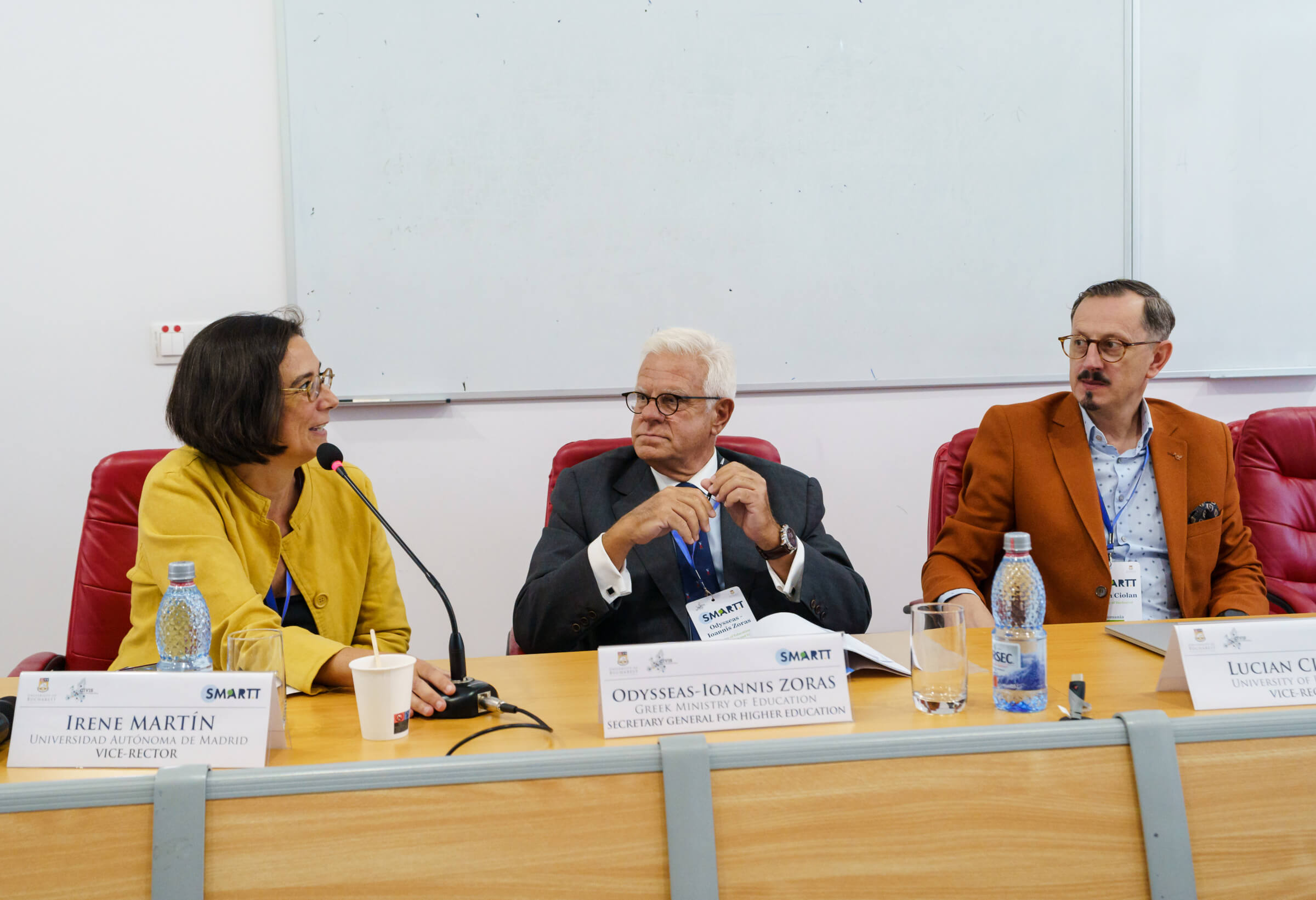 In addition, numerous representatives from the field of higher education, representatives from the Ministries of Education in EU member countries participating in the project, as well as national quality assurance agencies in education and research from various EU member states, European universities, and academic communities, and many experts in the field of higher education from the European space, attended the meeting, both in person and online and made significant interventions.
In addition, numerous representatives from the field of higher education, representatives from the Ministries of Education in EU member countries participating in the project, as well as national quality assurance agencies in education and research from various EU member states, European universities, and academic communities, and many experts in the field of higher education from the European space, attended the meeting, both in person and online and made significant interventions.
The SMARTT expert meeting, which was held for the drafting of the interim results of the program, notably featured the participation of Prof. Dr. Marian Preda, the Rector of the University of Bucharest, Prof. Dr. Sophia Papaioannou, the Vice Rector at the National and Kapodistrian University of Athens (NKUA), Prof. Dr. Fernando Diez Rubio, Assistant to the Chancellor for Teaching Quality and Innovation at the Autonomous University of Madrid, and Prof. Dr. Duncan Ross, the Rector of Learning and Teaching and Deputy Head of College at the University of Glasgow.
Considering their significant experience in designing and implementing joint and multiple study programs at a transnational level, the higher education institutions involved in the SMARTT project aim to expand this experience and formulate recommendations and proposals based on clear methodologies and detailed analyses, for both the European Commission and the member states. The goal is to support the development of a European approach to the design and implementation of common European Diplomas in the near future, in line with the European University Strategy and the strategic objectives of the European University Alliances. Notably, the SMARTT project also aims to issue such common European Degrees by the first part of 2024 following a testing and pilot process on a significant number of transnational joint study programs.
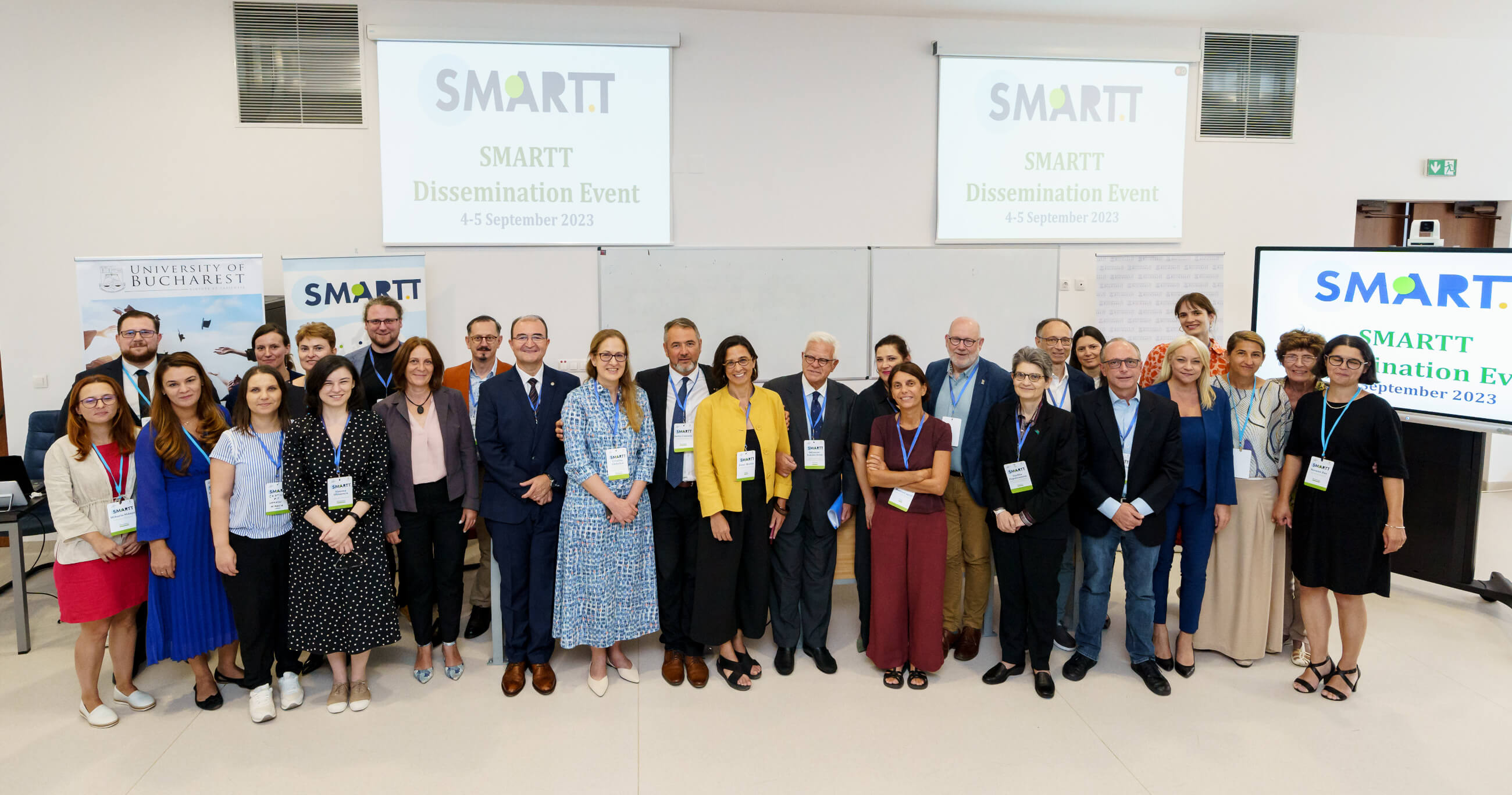
|
|
|
SMARTT is an innovative project aiming at analysing, testing, and piloting the new European Degree label criteria, improving the quality, and increasing the transferability of future developments of European Degrees across Europe and beyond. SMARTT is formed by the CIVIS - Europe’s Civic University Alliance in cooperation with the European Universities Alliances EUTOPIA, NEUROTECHEU, and UNITA, alongside higher education institutions, national and regional stakeholders and relevant actors. Based on significant experience in designing and delivering joint and multiple degree programmes at transnational level, the higher education institutions involved in the SMARTT project propose to expand this experience and draw, based on clear methodologies and thorough analyses, recommendations and proposals both for the European Commission and the member states, to support the development of a European Approach for designing and implementing Joint European Degrees in the future. The consortium partners possess an extensive history of successful international collaboration and have consistently played a leading role in the co-development of the European Degree policy initiative since its inception. For further information, please visit the SMARTT project website.

